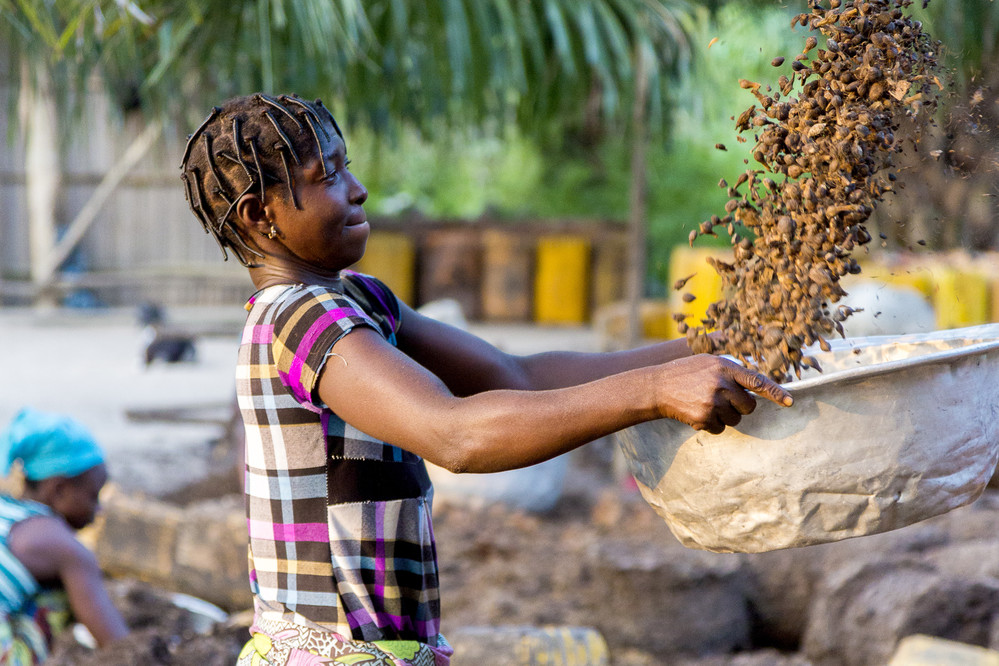
“Climate-smart agriculture in West Africa: challenges for innovative financing in support of the public and private sectors” was the theme of a parallel session held at the West African Development Bank (BOAD) Pavilion on 6 December 2023 at COP28 in Dubai.
The session brought together officials from the BOAD, government representatives, the private sector and civil society, providing an opportunity to discuss the challenges, constraints and prospects associated with innovative financing for climate change-smart agriculture (CSA) in support of the public and private sectors in the countries of the West African Economic and Monetary Union (WAEMU).
Adeyemi Sandra Freitas, CEO of Sustainable Development Africa, Christophe Deguenon, Director of Environment and Water Resources at UEMOA, Esso Sam Agrignan, CSA economist, climate policy and financing expert-ClimSA Project from Senegal, Seidou Traoré, agrometeorologist and coordinator of the Intra-ACP ClimSA project for West Africa, and Eric Edem Amoussou, senior environmentalist at BOAD made up the session panel.
They noted the importance of the agricultural sector to the economy of the WAEMU zone, underlining the sector’s many challenges, including those related to climate change, soil degradation, demographic pressure, and competition from imports.
“Climate-smart agriculture is an approach that aims to make agriculture more resilient to climate change and reduce its greenhouse gas emissions. It is based on a range of practices and technologies, such as agroecology, sustainable irrigation, precision farming and natural resource management”, explained Esso Sam Agrignan. In addition to mobilising financial resources from the BOAD, he proposed capacity-building for agricultural players at various levels, and scaling-up innovations in the WAEMU region. In his view, it is important to rethink CSA in relation to agroecology in the context of climate change, because “every half degree counts, every year counts, and every choice counts”.
“It’s essential to adopt CSA for the WAEMU zone, as it will make it possible to reduce the vulnerability of rural populations to climate change, improve agricultural productivity and food security, and protect the environment and natural resources”, he said. However, adopting CSA required substantial investment, which was often difficult for small-scale farmers to mobilise, he pointed out.
Christophe Deguenon, Director of Environment and Water Resources at WAEMU, pointed to the “dictatorship of urgency on the part of public authorities” in favour of projects to promote and adopt AIC and agroecology in the sub-region, especially as these agricultural innovations are often outweighed by other imperatives such as health, security, and education. He called for monitoring and evaluation of projects in the sector to capitalise on successes.
Seidou Traoré identified the main constraints to innovative financing for CSA in the WAEMU zone, citing the fragmented agricultural sector, among other things: “the agricultural sector is made up of a large number of small agricultural producers who are often dispersed and difficult to reach”; the lack of data and information on CSA, which is often insufficient or inaccessible, making it difficult to assess CSA risks and opportunities, and the lack of appropriate financing. “The funding available for CSA is often insufficient and does not meet the specific needs of small-scale agricultural producers”, he stressed.
Mr Traoré referred to “ClimSA, promoter of CSA”, the NGO making a difference in Burkina Faso with its rigorous management, funding, and support from national and international financial and agrometeorological bodies.
For Eric Edem Amoussou, senior environmentalist at the BOAD, who moderated the session, there are many positive prospects for innovative financing of CSA in the WAEMU zone, constraints notwithstanding. The prospects are linked to initiatives to develop innovative financing mechanisms, to the promotion of CSA by public authorities in the WAEMU zone, particularly through support policies and programmes, and the growth in demand for sustainable agricultural products such as organic and conservation agriculture products, which is creating new opportunities for agricultural producers who adopt CSA, he added.
According to these experts, there are complex challenges, constraints, and prospects for innovative financing of the CSA in the WAEMU zone. However, there are factors that should encourage the development of this type of financing in the years to come, especially through the BOAD, which is sparing no effort to support the agricultural sector in the face of the climate crisis.
This article was originally published by: AfDB

